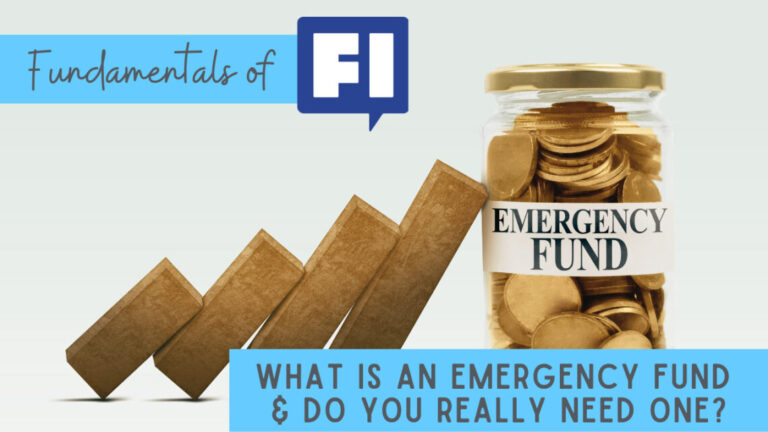Debunking the Myths Around Financial Independence (FI)
The question of who financial independence (FI) is for often arises in discussions around personal finance. It might seem like FI is reserved for people of privilege or those in high-earning professions, but this couldn’t be further from the truth. FI is not limited to a specific demographic; it’s a concept and goal accessible to everyone, regardless of their background or income level.
FI is Not Just for the Privileged Few
The early portrayal of FI enthusiasts, often as white male engineers in their 30s, has created a stereotype that FI is only achievable for specific demographics. This notion is misleading. FI is for everyone – it spans across all professions, backgrounds, and countries. It’s a universally inclusive goal, focused on living a better life, however one defines it.
The Power of Community in the FI Journey
The journey towards FI can be significantly enhanced through community support. ChooseFI local groups are a testament to the strength of people of similar financial mindsets coming together. Individuals can openly discuss personal finance topics in these groups, breaking the taboo surrounding money conversations. This community aspect is crucial in demystifying FI and making it more attainable.
Understanding the Mathematics of FI
The path to FI is governed by straightforward mathematics, which remains constant regardless of your income level. The key factors are your savings rate and your expenses. Whether you earn $70,000 or $1 million a year, the fundamental principles of FI remain the same. The journey might be easier for high earners, but it’s not exclusive to them.
The Relative Journey to FI Based on Income
It’s undeniable that someone earning a higher income may find it easier to save and, consequently, reach FI quickly. However, this doesn’t mean FI is out of reach for lower-income earners. The first step towards FI can be as simple as saving your first $1,000. This initial step can significantly reduce financial stress, regardless of your total income.
Life-Changing Impacts of Starting the FI Journey
The journey towards FI can be transformative for those living paycheck to paycheck. Accumulating savings, even as little as $5,000 or $10,000, can drastically change one’s life. It creates a buffer from the financial edge where a $400 emergency expense can lead to debt or a financial crisis. This safety net transforms emergencies into manageable inconveniences.
The Reality of Financial Emergencies
Life is unpredictable and often “lumpy” with unexpected expenses. For someone without savings, events like needing new tires can become financial emergencies. However, with some savings and a growing net worth, these situations become mere bumps in the road. Having a financial cushion provides power and peace of mind.
FI is Attainable for All
The essence of FI is not just about the end goal, but the journey and the mindset change it brings. Even if reaching complete financial independence seems daunting, striving towards it invariably improves your financial health and quality of life. No matter how small, the first step towards saving sets you on a path to a less stressful and more controlled financial future.
The Bottom Line: Start Your FI Journey
Regardless of your income, background, or current financial situation, beginning your journey toward financial independence can only improve your life. It’s about taking that first step towards saving and gradually building a cushion to handle life’s uncertainties confidently. Start your FI journey today and watch as your life transforms for the better.
Video Transcript
A question we often get asked at ChooseFI is, who is FI for? And while this is a very simple question, on the face of it. It’s really, really important that I see from the outside that FI is for everyone. Okay. This is not just for people of privilege or significant income or high net worth, right? It’s not for people of certain professions. I think there was a caricature of this for white guys in their 30s who are engineers because a couple of, like, the very early famous bloggers in the FI world were precisely that and became a character. Is this just for people who are doctors or lawyers? I mean, my answer is absolutely not.
Our community is a worldwide community. It’s people from every background, every profession and I think this is a really inclusive community because it’s people who just genuinely want to live a better life. However, they define that, and that, to me, is such a cool thing. And as I’ve seen through our ChooseFI local groups, it’s amazing. The power that happens when you get people of like minds together because a lot of us can’t talk about personal finance. We can’t talk about money. It’s taboo, right? And it doesn’t have to be.
So, I think going back to the original question. Who is this for? OK, obviously, I would be a fool and naive to say that it’s not going to be easier to reach Financial Independence for somebody making a million dollars a year, than somebody making twenty thousand dollars a year, right? Obviously, it’s going to be easier for that person with a high income. But for most people in, this is the way that I chose to look at it. Is that a position of strength, right? No matter where you are, first off, the math Is the same. So, we’ve talked about the 4% rule. We’ve talked about savings rates in these FI Fundamentals. The math is absolutely the same no matter if you make seventy thousand dollars a year or that million dollars a year, so it comes down to savings rate and it comes down to ultimately, what are your expenses? Right? What do you have to cover? And therefore, what does your net worth have to be? So, that’s kind of a cool underpinning of this, but I think the most important factor is that, are you going to be better off on the path to FI?
Then if you haven’t started, and I think unquestionably, the answer is, yes, you will be better off on the path to FI. Now, if you’re making thirty thousand dollars a year again, are you going to get to FI as quickly as someone making a million dollars? Probably not just based on what I assume to be savings rates and you know, obviously, life costs a certain amount. So, somebody is making a million dollars a year. They probably have a significant savings rate. It’s going to be easier for them.
But for somebody, no matter where you are in the income spectrum, if you have, never had any money in your bank, right? You have credit card debt, and you feel like you’re drowning that very first time you have a thousand dollars saved up in your bank account. Your life is dramatically less stressful, right? The first time, you have 5,000 10,000 dollars.
Imagine if you’re somebody who lives paycheck to paycheck. Just using credit cards to get by and you have ten thousand dollars in the bank X number of months. After going down this path to FI, whatever that number of months is here. It doesn’t matter when you have ten thousand dollars in the bank, five thousand dollars. Even your life is so much less stressful because you’re not living in fear of everything, right? Everything is a catastrophe when you have no money saved up, and you hear these stats, you know, they’re all are different. But something to the effect of 40 to 50 percent of Americans cannot cover a 400-dollar expense, right? They have to borrow money. They have to get a payday loan or put it on credit cards at 20 plus percent interest. Right in the case of payday loans, hundreds of percent interest per year, which is absurd but you’re living on that edge. If you have no money saved up and I mean just something simple. Like you got a flat tire.
And it costs you 150 dollars to get a new tire. If you have no money saved. That is an emergency. Truly. Whereas I like to look at it as life is lumpy. Okay, that isn’t an emergency. You’re going to eventually in your life you’re going to get a flat tire or just simply you’re going to need new tires, right? Forget a flat tire, just hey tires last X. number of miles, 35,000 miles, whatever it is. At some point, you’re going to need new tires, right? And I hate to hit the hard button in this exact example, but \actually just on our car we had to replace the tires, and it was it was expensive. But if we had no money saved up, that would have been an emergency. I don’t know what we would have done.
But again, with some savings with some net worth, you have power because you don’t have to freak out when something like that happens, right? So, I think that is the critical piece of what we’re talking about here. So, this is for everybody, even if FI seems unattainable to you. I would argue that it is not unattainable really for anybody within reason. But even if you’re going to just humor me, right?
Listen, this video just humor me, and oh, it seems impossible for me, but regardless then that’s fine. We will take that. It might be a limiting belief, but we’ll take that for now. But I guarantee you that first time, you have a couple thousand dollars saved up your life is going to be better. It just simply as so that is why I feel so strongly that no matter who you are, what your background is. If you have a limiting belief, no matter what your income is where you live. It doesn’t matter, your life will be better when you are on the path to financial Independence. And I believe that with every fiber of my being.



